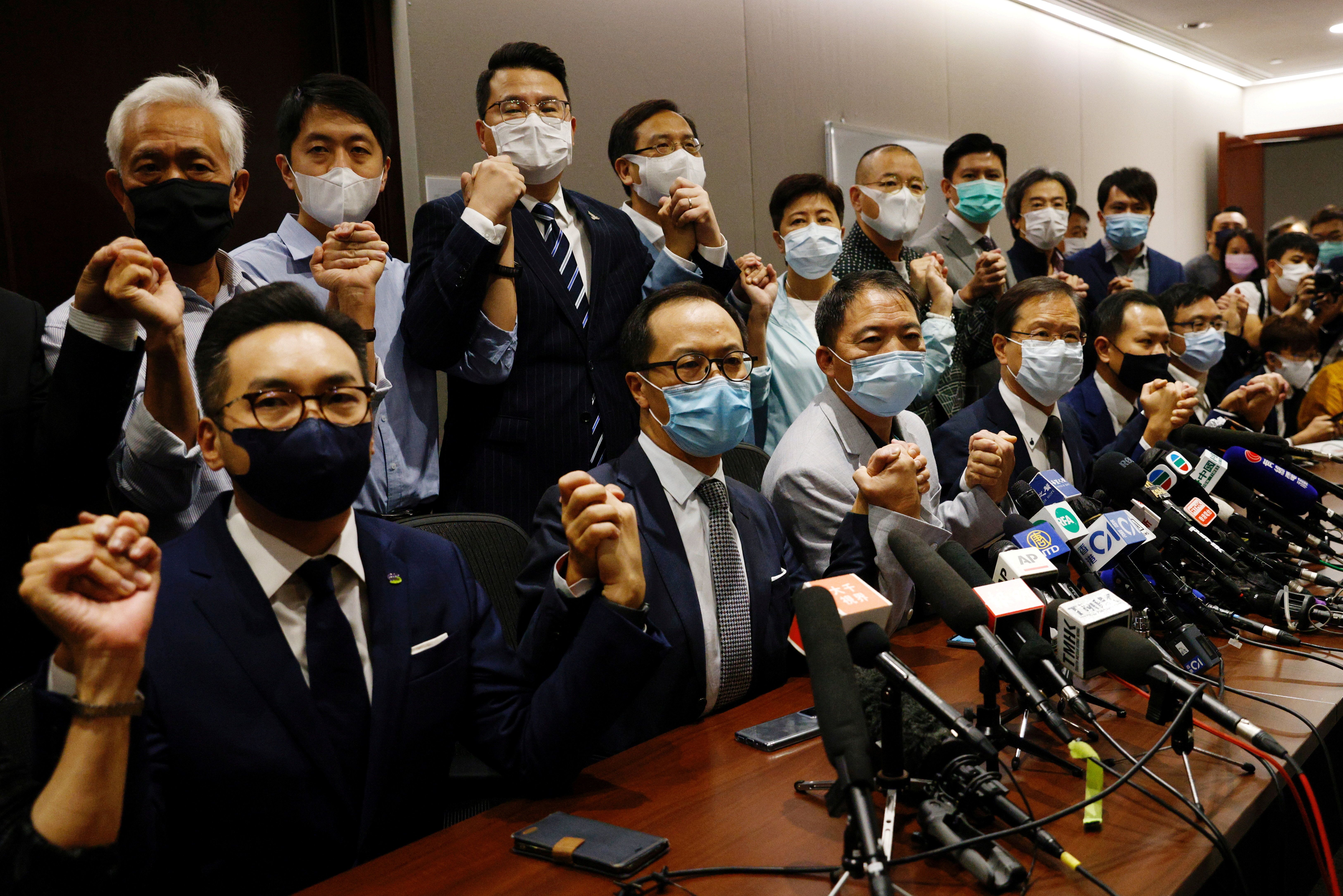November 11, 2020
Hong Kong democrats walk out: The entire bloc of pro-democracy legislators in Hong Kong's parliament resigned on Wednesday, after four fellow lawmakers were removed from office for allegedly violating China's draconian security law for the territory. The move came after Beijing passed a new resolution allowing the city's government to remove politicians deemed a threat to national security. But the walkout carries a cost: now, for the first time since the UK handed the territory back to Chinese control in 1997, there are no voices of dissent against Beijing in the legislature. Does this spell the "death knell" for democracy in Hong Kong? The pro-democracy movement is running out of ways to counter Beijing.
Ethiopians flee to Sudan: A deepening civil war between the national government and local forces in the Tigray region of northern Ethiopia is now spreading beyond the country's borders, as thousands flee into neighboring Sudan. The conflict began last week when the national government led by Prime Minister Abiy Ahmed launched military strikes on the Tigray region, accusing local leaders of having attacked an army base. But tensions had been simmering for months, as Tigray leaders — who used to be part of the national governing coalition — ignored Abiy's decision to postpone elections scheduled for earlier this fall and held their own vote anyway. So far several hundred people have been killed and a few thousand refugees have fled to Sudan as Ethiopian forces advance. But some observers say that as many as 200,000 people could stream across the border in the coming days, placing a strain on Sudan's cash-strapped government and threatening to destabilize the region more broadly.
Modi wins in Bihar: Indian Prime Minister Narendra Modi's ruling BJP party has claimed victory in Bihar, the country's third most populous state, and the first to hold a regional election since the start of the coronavirus pandemic. The BJP and its allies have secured a majority of seats to continue in power in Bihar — a huge upset for the opposition, which was widely favored to win back the state. It's a big win for Modi, who many experts predicted would take a hit in Bihar over his handling of the COVID-19 crisis in India, which is second only to the US in total infections and deaths. The election was marred by a bit of controversy after the BJP last month promised it would make vaccines available for free to voters if it won (and was heavily criticized for it). Either way, the results suggest that the pandemic has barely made a dent in Modi's popularity at the ballot box.More For You
- YouTube
Is China’s economic model reaching a breaking point? In GZERO’s 2026 Top Risks livestream, Cliff Kupchan, Chairman of Global Macro at Eurasia Group, highlights mounting pressures on the Chinese economy.
Most Popular
2026 is a tipping point year. The biggest source of global instability won’t be China, Russia, Iran, or the ~60 conflicts burning across the planet – the most since World War II. It will be the United States.
While surgeons remain fully in control, technological advances are expanding the use of surgical robots in operating rooms. As adoption accelerates, so do the expectations for patient outcomes and surgical care. Track medical innovation trends with Bank of America Institute.
- YouTube
Europe enters 2026 under mounting strain as it confronts external threats, internal political pressures, and a weakening relationship with the United States. In GZERO’s 2026 Top Risks livestream, Mujtaba Rahman, Managing Director for Europe at Eurasia Group, describes a continent that is “exhausted, fatigued, weak, and vulnerable.”
© 2025 GZERO Media. All Rights Reserved | A Eurasia Group media company.
